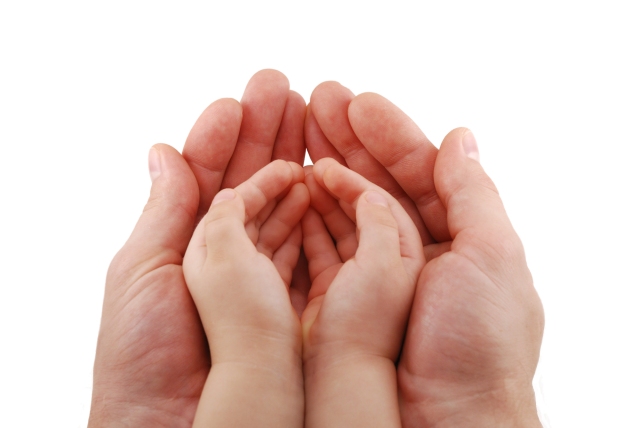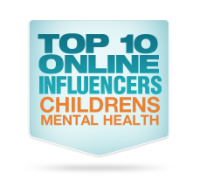 Thank you for stopping in to read the twelfth article in Jolene Philo’s series about PTSD in children. The first ten posts in this series focused exclusively on PTSD children. However last week’s post was about what parents can do to advocate effectively for traumatized children. This post continues in the same vein by examining why kids with PTSD need mentally healthy parents–a reality I first began to deal with after our son’s PTSD treatment in 2006.
Thank you for stopping in to read the twelfth article in Jolene Philo’s series about PTSD in children. The first ten posts in this series focused exclusively on PTSD children. However last week’s post was about what parents can do to advocate effectively for traumatized children. This post continues in the same vein by examining why kids with PTSD need mentally healthy parents–a reality I first began to deal with after our son’s PTSD treatment in 2006.
One day, I was sitting in the waiting room of the clinic where our son was being treated for PTSD waiting to take him to lunch. One of the therapists strolled in and stood in front of me.
“Are things going okay?” I asked.
“Very well.” He nodded and held my gaze. “But what about you, Mom? How are you doing with all this?”
The question caught me off guard. Our son had been the one the surgeons, doctors, nurses, and x-ray techs wanted to know about since the day of his birth No one had ever asked about me. Or my husband.
“Me?” I stammered. “I’m fine. You’ve done so much for our son this week. I’ve never been better.”
“Really?” the therapist mused. “That’s interesting.”
Just then, our son came into the waiting room and the conversation ended. In the years since our encounter, I have mulled over that unexpected question many times. The mere asking of it somehow gave me permission to admit I’d experienced trauma as a mom. The more I thought about it, the more my tendency to avoid visiting people in the hospital made sense. I came to understood why my pulse quickened and my stomach knotted for years when my now-stable and responsible son called and said, “Hi, Mom.”
Eventually, through treatment and practice, I eventually learned to confront and process my experiences. As it turns out, recent research proves highlights several reasons why traumatized children need mentally healthy parents. Here are just a few.
Reason #1: Children of mothers with PTSD are at higher risk of developing PTSD. After the 2013 missile attacks in Israel, researchers found that the children of mothers who developed PTSD after the attacks were at much higher risk of developing PTSD than other children.
Reason #2: Parents diagnosed with depression are more likely to abuse their children. Another 2013 study asked mothers to complete a questionnaire about how often they abused their children, either physically or emotionally. Mothers diagnosed with both depression and PTSD were most likely to report abuse. But mothers diagnosed with only PTSD reported more abuse than those with only depression. Moms with any sort of mental illness reported abuse more often than did mentally healthy moms.
Reason #3: Children of depressed parents have a higher risk of developing PTSD. A 2014 Journal of Pediatrics study examined family members who had been in serious accidents together. In some cases, only the parent was injured, in others only the child, and sometimes both the parent and the child were injured. The study found that children whose parents were depressed after suffering severe injuries were at risk of developing PTSD even when the children weren’t injured.
Reason #4: Parents of Medically Fragile Kids Have a Higher Risk of Developing PTSD. In 2005, the Children’s Hospital of Philadelphia found that parents of kids with cancer exhibited many symptoms of post-traumatic stress disorder. In a New York Times online story, Laurie Tarkan summarized the results of several studies. Her review revealed that parents of NICU infants are at a higher risk of PTSD than parents of babies never in the NICU.
If you are raising a child with PTSD or other mental issues, you are probably dealing with your own trauma, too. You need to tend to your own mental health by practicing self-care. If your child is receiving mental health treatment, ask the therapist to include you in some of the sessions or to set up a separate appointment for you. If that won’t work, ask your child’s therapist, trusted friends, or your pastor for recommendations. You can also go to Psychology Today’s therapist locator and type in your city or zip code to get a listing of therapists near you. Go to their websites to learn more about them. Call and ask questions. Find out if the therapists are in your insurance network. Then call and make an appointment with one of them. If you go to the first appointment and the therapist doesn’t feel right, try someone else. And remember, you’re not seeking treatment just for yourself. Your kids need mentally healthy parents. You’re doing this for your kids.
***********************************************************************************************************
 Does My Child Have PTSD? is designed for readers looking for answers about the puzzling, disturbing behaviors of childen in their care. With years of research and personal expererience, Jolene Philo provides critical information to help people understand causes, symptoms, prevention, and effective diagnosis, treatment, and care for any child struggling with PTSD. Available for order at Amazon.
Does My Child Have PTSD? is designed for readers looking for answers about the puzzling, disturbing behaviors of childen in their care. With years of research and personal expererience, Jolene Philo provides critical information to help people understand causes, symptoms, prevention, and effective diagnosis, treatment, and care for any child struggling with PTSD. Available for order at Amazon.





I would love to get your feedback on what is happening in the mental health world today with everyone getting a label and meds, and everyone fitting cozy into a DSM Dx. Its scary how many billions the drug companies and doctors make. My site is http://www.dontlabelmykid.wordpress.com I welcome your input!
LikeLike
Yes, Yes, YES!!! As always, excellent, important insights on this topic, Jolene.
LikeLike
Several facts I didn’t know about! Thanks for sharing!
LikeLike